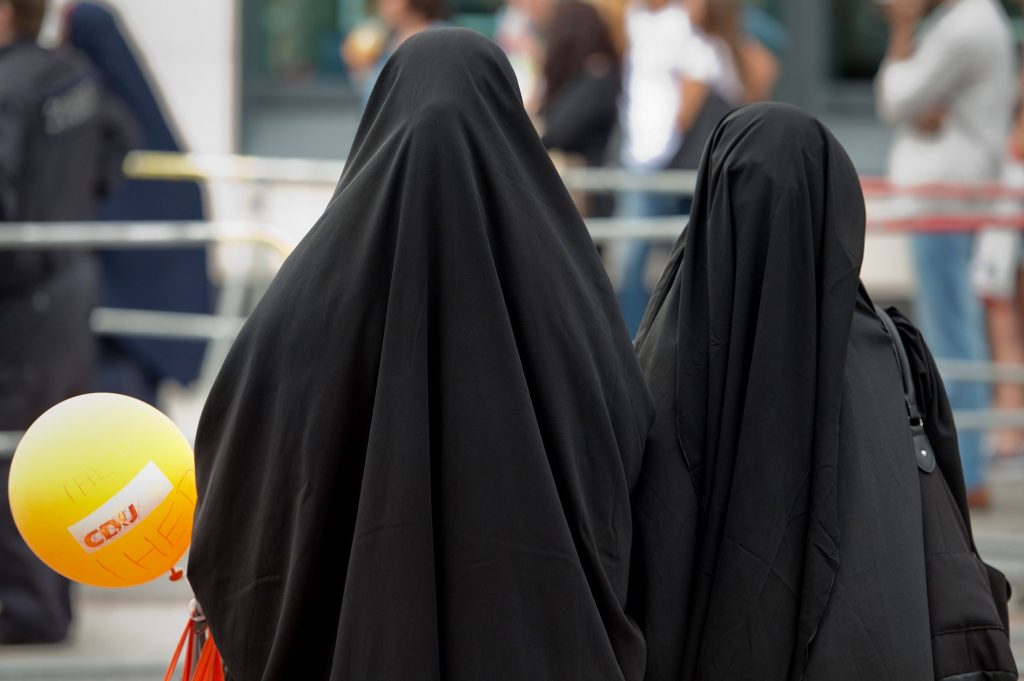
On Sunday, Switzerland voted to ban “full facial coverings” in public places. Provisional results showed that the vote in favor of the ban had succeeded with a slim majority of just 51.2%. Similar bans have been in place in other European countries, such as France, Belgium and Austria who have already banned face coverings such as the burqa and niqab.
The referendum in Switzerland comes after years of debate and a decade after another national vote that banned the building of minarets. Switzerland operates a system of direct democracy that allows vote on issues. Any topic can be put to a national vote as long as it gathers 100,000 signatures in the country of 8.6 million people.
The initiative behind the referendum was launched in 2016 by the Egerkingen Committee, an association that also successfully pushed for a vote to ban the building of new minarets in 2009, and which has links to rightwing Swiss People’s party.
What the ban would mean
The proposal to ban “full facial coverings” in public places does not specifically mention the burqa or the niqab. The proposal also does not mention Islam directly and also aims to stop violent street protesters from wearing masks. However, facial covering like the Hijab and Niqb which cover the entire face leaving only the eyes uncovered is only worn by Muslim women in Switzerland.
Under the proposal, nobody would be allowed to cover their face completely in public — whether in shops or the open countryside. There would be exceptions, including places of worship.
France banned wearing a full face veil in public in 2011 and Denmark, Austria, the Netherlands and Bulgaria have full or partial bans on wearing face coverings in public.
Two Swiss regions of Ticino and St Gallen already have such bans. Face coverings at protests and sport events are already banned in 15 of Switzerland’s 26 cantons.
Opinions over the ban
The Swiss People’s Party has strongly backed the measure. One of its campaign posters shows a caricatured image of the scowling eyes of a woman in a niqab above the words: “Stop Islamic Radicalism.”
“In Switzerland, our tradition is that you show your face. That is a sign of our basic freedoms,” Walter Wobmann, chairman of the referendum committee and a Swiss People’s Party MP, had said before the vote.
He called facial covering “a symbol for this extreme, political Islam which has become increasingly prominent in Europe and which has no place in Switzerland”.
The Central Council of Muslims in Switzerland called the vote a “dark day” for the community. Muslims make up 5 percent of the Swiss population of 8.6 million people, most with roots in Turkey, Bosnia and Kosovo.
Supporters of the ban opine that it also intended to stop violent street protesters and football hooligans wearing masks, and that the referendum text does not explicitly mention Islam or the words “niqab” or “burqa”.
